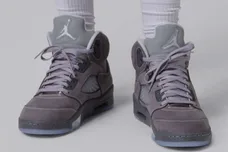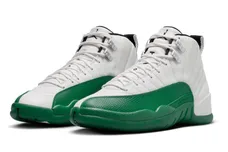As of this moment, both Drake and Kendrick Lamar are, without question, two of the most commercially successful rappers of the new millennium. And while commercial success and critical acclaim can sometimes feel mutually exclusive, Drake and Kendrick have managed to make lasting impressions through their strengths as songwriters, culminating in consistent discographies for both parties. In many ways, the rappers always seemed destined for comparison. After all, in a hip-hop culture that somewhat mirrors that of a monarchy, there can only be one king. Perhaps that explains why Kendrick and Drake are so often discussed as polar opposites, despite the parallels both men share.
On June 15th, 2010, Drake released his debut studio album Thank Me Later. While there has been debate as to whether or not So Far Gone should be assessed as his “proper” debut in the context of this article, Thank Me Later emerged as the preferred choice; the album showcased what Drake was capable with a major label budget, and presumably, an increased scope in creative possibility. The project dropped to largely positive reviews, and many were impressed with Drake’s restraint and penchant for emotional connectivity.
The same conundrum arose when it came to selecting which Kendrick Lamar album to use. Ultimately, I decided good kid, m.A.A.d city would be a fitting choice, as it stands as Kendrick Lamar’s major label debut. While Section 80 is an excellent project, it remains an independent album, and it would be unfair to match it up against one with major label backing. Therefore, it made more sense to settle on the major label debuts for the sake of this competition.
While Drake was enjoying the success of his sophomore project, the fan-favorite Take Care, Kendrick Lamar had inked a deal with Dr. Dre’s Aftermath for his major label debut good kid, m.A.A.d city. The project even featured a verse from Drake, who turned up on the song “Poetic Justice.” When it was released on October 22nd, 2012, Kendrick’s album was largely received as a modern classic, with many praising the lyricism and complex conceptual structure.
Now that several years have passed since both releases, it’s interesting to examine their role within each artist's legacy. When it dropped, many people felt as if Drake’s debut showcased a promising glimmer of his full potential, and accepted that his later works were marked improvements on the foundation Thank Me Later built. Conversely, Kendrick fans found themselves wondering if good kid, m.A.A.d city was a rare first-time magnum opus, and wondered if he would be able to follow-up on the lofty ambition and creative heights his major label debut contained.
So now, blessed with the benefit of hindsight, which major label debut reigns supreme?
Production
Since the beginning, and even now, 40 has always been Drake’s most consistent contributors. As one of the co-founders of the OVO Record label, 40 clearly plays a prominent role in the creative direction of Drake’s sound, and what started as a relationship between engineer and emcee has developed into a creatively rewarding collaboration for both parties. 40 ended up contributing on eight out of fourteen Thank Me Later tracks, the dominant name on a roster that included cuts from Swizz Beatz, Timbaland, Boi 1da, Kanye West, No. I.D. and more. 40 was also responsible for many of the album’s strongest, most formative moments; he basically paved the way for a new production wave, blending atmospheric synth pads with minimalist, reverberated percussion.
Songs like “Shut It Down,” produced by 40 and Omen, call back to the 80’s synth wave, while others like the Boi 1da laced “Over” proved that Drake could hold his own over a straight-up banger. One of the album’s production highlights is the icy ambience of “Light Up,” which finds Drake trading bars with none other than Jay-Z. Overall, the production on Thank Me Later might never elevate beyond a certain peak, but it remains consistently strong throughout. More importantly, however, it marked a cornerstone moment in the development of Drake’s sound.
On good kid, m.A.A.d city, the production comes from a variety of different places. Despite the album’s linear concept, there is no proverbial 40 to anchor Lamar with a sonic direction. Instead instrumentals come from producers like Tha Bizness, Sounwave, Hit Boy, Pharrell Williams, DJ Dahi, and Just Blaze, among others. The eclectic production team meant Kendrick was never glued to a specific sound, but it also allowed for a wider breadth of sonic diversity.
There were bangers, like Hit Boy’s “Backseat Freestyle” and DJ Dahi’s “Money Trees.” There were subdued, melodically rich cuts like the Beach House sampling “Bitch Don’t Kill My Vibe” from Sounwave, which is probably my personal favorite track from the project. Kendrick proved he had a clear vision for this project, and each beat served a clear purpose, standing as distinctly unique as a short story in an anthology, yet operating beneath the umbrella of an underlying theme.
Lyricism
Many have come to know that Kendrick Lamar is an elite lyricist, capable of penning vivid imagery, creating cohesive narratives, and straight up clowning the competition when need be. That’s not to say that Drake isn’t an excellent lyricist, because doing so would be a disservice to Aubrey’s pen game.
However, Kendrick’s lyrical style is simply on another level on this project - not only is he operating under the conceit of the “good kid, maad city” narrative, but on certain song’s he’s rapping from the perspective of different characters. Essentially, he’s doing the hip-hop equivalent to Robert Downey Jr. in Tropic Thunder - a dude, playing a dude, disguised as another dude.
Perhaps the best example of Kendrick’s most complex lyricism stems on “Sing About Me / Dyin’ Of Thirst,” in which K.Dot is going in from three different viewpoints. He even delves into the meta-narrative his music created, referencing his indie album Section 80:
“You wrote a song about my sister on your tape
And called it Section.80
The message resembled "Brenda's Got a Baby"
What's crazy was I was hearin' about it
But doubted your ignorance
How could you ever just put her on blast and shit?”
And that’s not even mentioning the madness that is the MC Eiht assisted m.A.A.d City.
While Drake isn’t exactly operating on such an intricate, literary level, his lyricism draws strength from another place. Thank Me Later finds Drake in a simpler time, where his hopeless romanticism feels genuine, unblemished by the jadedness yet to come. If the criteria is strictly based on technical ability, it’s hard to see a scenario in which Thank Me Later Drizzy can topple Kendrick’s arguable best work. Nor does he necessarily have to. After all, Thank Me Later doesn’t call for the same level of lyrical density as good kid.
Much of the production on Thank Me Later is centered around evoking an emotional response, with intimacy, lust, and sensuality all coming to mind. Therefore, Drake’s biggest challenge is delivering on the promises those instrumentals make, coming off as genuine and authentic. While Drake has debatably struggled with this in the latter half of his career, Thank Me Later finds Drizzy at his most undisputably honest. The song “Shut It Down” lives and dies on the strength of Drake’s lyrics and performance, and Drizzy comes through in a big way.
“You wanna do this right
And I’m not trying to say I don’t believe you
But I refuse to feel ashamed and if you feel the same
Does waiting really make us better people?
Take those fucking heels off, it’s worth it girl
Nothing is what I can picture you in
So take that fucking dress off, I swear you won’t forget me
You’ll be happy that you let me”
Impact
Having recently listened to both projects, I was surprised to see how well each one aged. Kendrick Lamar’s good kid, m.A.A.d city has been widely hailed as a classic, and even now, it remains at the forefront of Kendrick’s discography. On Drake’s end, Thank Me Later feels like a forgotten gem, with many focusing on Take Care and beyond. It’s a shame, because Thank Me Later represents an interesting facet of Drake’s personality, one that has eroded over the course of time. Kendrick, on the other hand, has continued to build off the foundation set by good kid, and his subsequent projects have all followed a similar blueprint as their predecessor.
Ultimately, Drake’s Thank Me Later stands as an underrated, formative project - the logical first step of a fascinating evolution. Kendrick, however, has somewhat found himself burdened by the legacy of good kid, m.A.A.d city. For better or worse, every project he releases will inevitably be compared to the conceptual Compton classic.
What do you think? If you missed it, last week saw 50 Cent's Get Rich Or Die Tryin' going head to head with The Game's The Documentary.
Drake Vs. Kendrick










